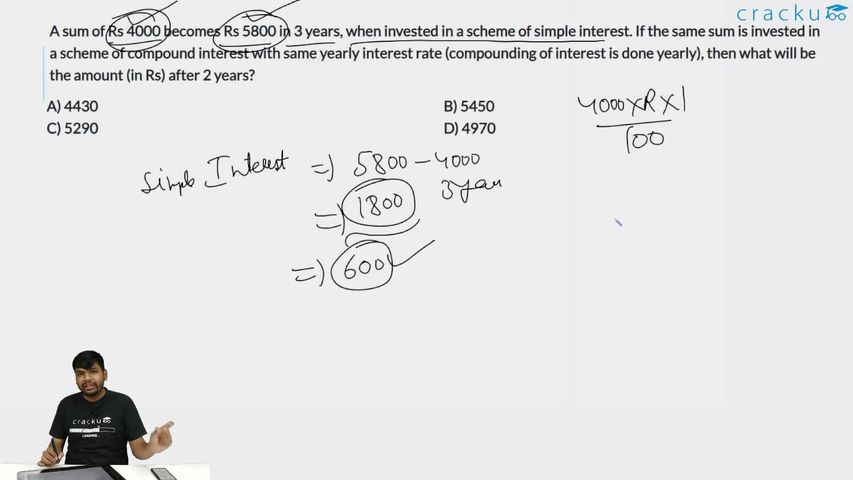A sum of Rs 4000 becomes Rs 5800 in 3 years, when invested in a scheme of simple interest. If the same sum is invested in a scheme of compound interest with same yearly interest rate (compounding of interest is done yearly), then what will be the amount (in Rs) after 2 years?
Solution
Principal sum = Rs. 4000 and time period = 3 years
=> Amount after simple interest = Rs. 5800
Thus, simple interest = Rs. (5800-4000) = Rs. 1800
Let rate of interest = $$r\%$$
=> Simple interest = $$\frac{P\times R\times T}{100}$$
=> $$\frac{4000\times r\times3}{100}=1800$$
=> $$120r=1800$$
=> $$r=\frac{1800}{120}=15\%$$
$$\therefore$$ Amount under compound interest = $$P(1+\frac{R}{100})^T$$
= $$4000(1+\frac{15}{100})^2$$
= $$4000(1+\frac{3}{20})^2=4000(\frac{23}{20})^2$$
= $$4000\times\frac{529}{400}$$
= $$10\times529=Rs.$$ $$5290$$
=> Ans - (C)
Video Solution

Click on the Email ☝️ to Watch the Video Solution
Create a FREE account and get:
- Free SSC Study Material - 18000 Questions
- 230+ SSC previous papers with solutions PDF
- 100+ SSC Online Tests for Free

